Siemens Healthineers Introduces SOMATOM On.site Mobile Head CT Scanner and AI-based MRI Assistants at RSNA
|
By MedImaging International staff writers Posted on 03 Dec 2019 |
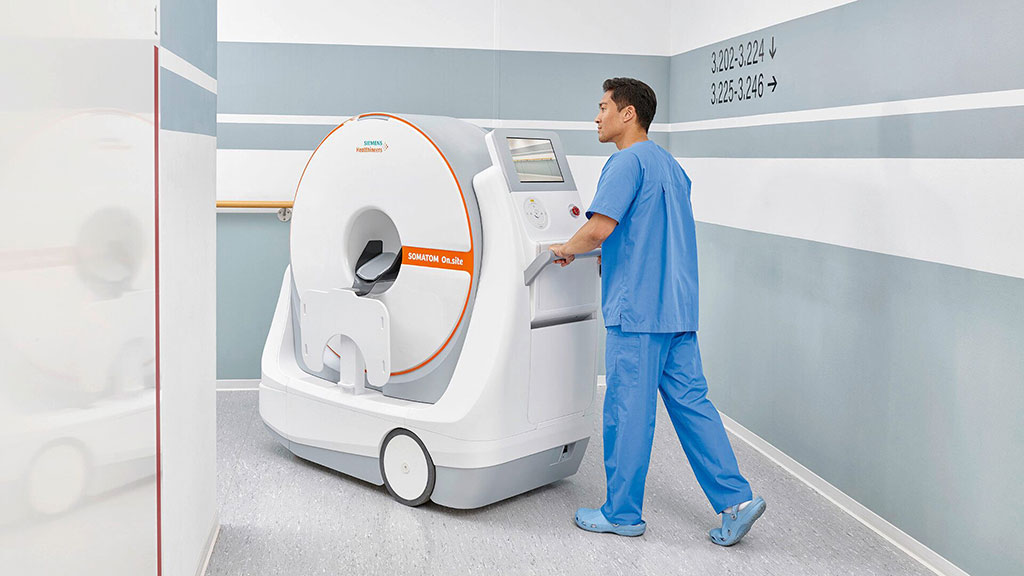
Image: Somatom On.site (Photo courtesy of Siemens Healthineers)
Siemens Healthineers (Erlangen, Germany) presented its new mobile head CT scanner, Somatom On.site and introduced artificial intelligence (AI)-based software assistants for magnetic resonance imaging (MRI) at RSNA 2019.
Siemens Healthineers’ new Somatom On.site mobile CT system allows the scanner to be taken to the ICU so that patients can be examined from their bedside, instead of transferring patients to the radiology department for a CT scan. Patients no longer have to be swapped from fixed devices (such as ventilators) to portable ones, then transport and scan the patient, then reattach the fixed devices. This removes the need for complicated patient transportation that involves multiple staff members and a high risk for the patient, thus revolutionizing scanning for intensive-care patients with skull and brain disorders.
Somatom On.site’s mobile concept includes a camera that displays the area in front of the device in real time on the integrated touchscreen. Users are supported by a motorized scanner trolley that enables intuitive and precise deployment in small spaces, and does not move during imaging, which prevents motion-induced image artifacts. Somatom On.site also features a revolutionary usability concept, the myExam Companion which guides users of all levels of experience through neuro exams and helps them achieve consistent results for diagnosis.
“For us, Somatom On.site is a fundamentally new approach to performing CT head scans for patients in intensive care. The combination of mobility, user-friendliness, and consistent image quality enables unprecedented levels of patient safety. At the same time, healthcare providers can make even more optimal use of their staff and CT fleet,” said Philipp Fischer, Head of Computed Tomography at Siemens Healthineers.
At RSNA 2019, Siemens Healthineers also introduced two software assistants based on AI that are designed to free radiologists from the burden of performing routine activities during MRI examinations in the body regions brain and prostate. AI-Rad Companion Brain MR for Morphometry Analysis automatically segments the brain in MRI images, measures brain volume, and marks volume deviations in result tables used by neurologists for diagnosis and treatment. AI-Rad Companion Prostate MR for Biopsy Support automatically segments the outer contour of the prostate on MRI images and enables radiologists to mark lesions, making it easier for their colleagues in urology to perform targeted prostate biopsies. Both the applications can be used on MRI scanners from different manufacturers and are available on teamplay, the cloud-based healthcare platform from Siemens Healthineers.
“With the new AI-based assistants, we are expanding our diagnostic offering to help our customers increase efficiency and improve the quality of care. We firmly believe that AI will help physicians deal with their workload and benefit patients by helping achieve an improved, patient-focused decision-making process,” said Peter Koerte, Head of Digital Health at Siemens Healthineers.
Related Links:
Siemens Healthineers
Siemens Healthineers’ new Somatom On.site mobile CT system allows the scanner to be taken to the ICU so that patients can be examined from their bedside, instead of transferring patients to the radiology department for a CT scan. Patients no longer have to be swapped from fixed devices (such as ventilators) to portable ones, then transport and scan the patient, then reattach the fixed devices. This removes the need for complicated patient transportation that involves multiple staff members and a high risk for the patient, thus revolutionizing scanning for intensive-care patients with skull and brain disorders.
Somatom On.site’s mobile concept includes a camera that displays the area in front of the device in real time on the integrated touchscreen. Users are supported by a motorized scanner trolley that enables intuitive and precise deployment in small spaces, and does not move during imaging, which prevents motion-induced image artifacts. Somatom On.site also features a revolutionary usability concept, the myExam Companion which guides users of all levels of experience through neuro exams and helps them achieve consistent results for diagnosis.
“For us, Somatom On.site is a fundamentally new approach to performing CT head scans for patients in intensive care. The combination of mobility, user-friendliness, and consistent image quality enables unprecedented levels of patient safety. At the same time, healthcare providers can make even more optimal use of their staff and CT fleet,” said Philipp Fischer, Head of Computed Tomography at Siemens Healthineers.
At RSNA 2019, Siemens Healthineers also introduced two software assistants based on AI that are designed to free radiologists from the burden of performing routine activities during MRI examinations in the body regions brain and prostate. AI-Rad Companion Brain MR for Morphometry Analysis automatically segments the brain in MRI images, measures brain volume, and marks volume deviations in result tables used by neurologists for diagnosis and treatment. AI-Rad Companion Prostate MR for Biopsy Support automatically segments the outer contour of the prostate on MRI images and enables radiologists to mark lesions, making it easier for their colleagues in urology to perform targeted prostate biopsies. Both the applications can be used on MRI scanners from different manufacturers and are available on teamplay, the cloud-based healthcare platform from Siemens Healthineers.
“With the new AI-based assistants, we are expanding our diagnostic offering to help our customers increase efficiency and improve the quality of care. We firmly believe that AI will help physicians deal with their workload and benefit patients by helping achieve an improved, patient-focused decision-making process,” said Peter Koerte, Head of Digital Health at Siemens Healthineers.
Related Links:
Siemens Healthineers
Latest RSNA 2019 News
- Carestream Introduces Three-Dimensional Extension of General Radiography Through Its Digital Tomosynthesis Functionality
- Lunit Demonstrates Latest Updated AI Solutions for Chest and Breast Radiology at RSNA 2019
- Bracco Diagnostics Unveils Contrast Media and Device Offerings at RSNA 2019
- Guerbet Showcases New Dose&Care and Other Digital Solutions with Diagnostic and Interventional Imaging Offerings
- Canon Introduces New Wireless Detectors and Digital PET/CT Scanner at RSNA 2019
- Hologic Launches Unifi Workspace, Comprehensive Reading Solution for Breast Health Diagnostics
- Agfa Launches New Groundbreaking Digital Radiography Unit at RSNA 2019
- Fujifilm SonoSite Exhibits Complete Point-of-Care Ultrasound Portfolio at RSNA 2019
- Fujifilm Previews World's First Glass-Free Digital Radiography Detector at RSNA 2019 Image
- NVIDIA Showcases Latest AI-driven Medical Imaging Advancements at RSNA 2019
- Philips Healthcare Demonstrates How AI Breast Software Brings Intelligence and Automation to Breast Ultrasound
- Siemens Healthineers Focuses on Digital Transformation of Imaging and Therapy at RSNA 2019
Channels
Radiography
view channel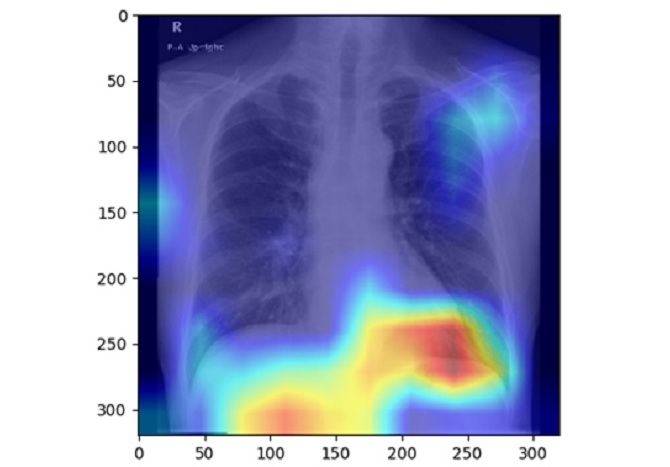
AI Detects Fatty Liver Disease from Chest X-Rays
Fatty liver disease, which results from excess fat accumulation in the liver, is believed to impact approximately one in four individuals globally. If not addressed in time, it can progress to severe conditions... Read more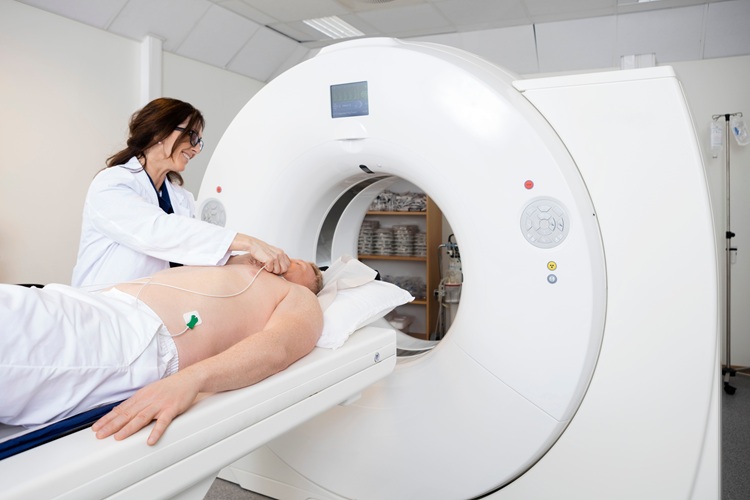
AI Detects Hidden Heart Disease in Existing CT Chest Scans
Coronary artery calcium (CAC) is a major indicator of cardiovascular risk, but its assessment typically requires a specialized “gated” CT scan that synchronizes with the heartbeat. In contrast, most chest... Read moreMRI
view channel
New MRI Technique Reveals Hidden Heart Issues
Traditional exercise stress tests conducted within an MRI machine require patients to lie flat, a position that artificially improves heart function by increasing stroke volume due to gravity-driven blood... Read more
Shorter MRI Exam Effectively Detects Cancer in Dense Breasts
Women with extremely dense breasts face a higher risk of missed breast cancer diagnoses, as dense glandular and fibrous tissue can obscure tumors on mammograms. While breast MRI is recommended for supplemental... Read moreUltrasound
view channel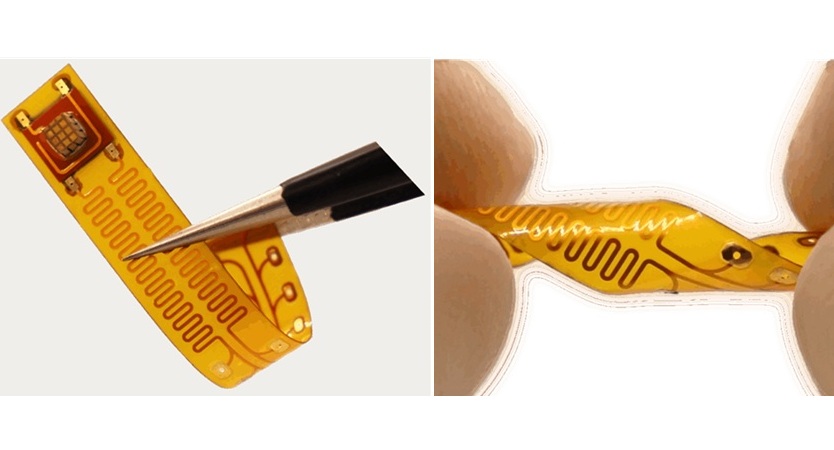
Wireless Chronic Pain Management Device to Reduce Need for Painkillers and Surgery
Chronic pain affects millions of people globally, often leading to long-term disability and dependence on opioid medications, which carry significant risks of side effects and addiction.... Read more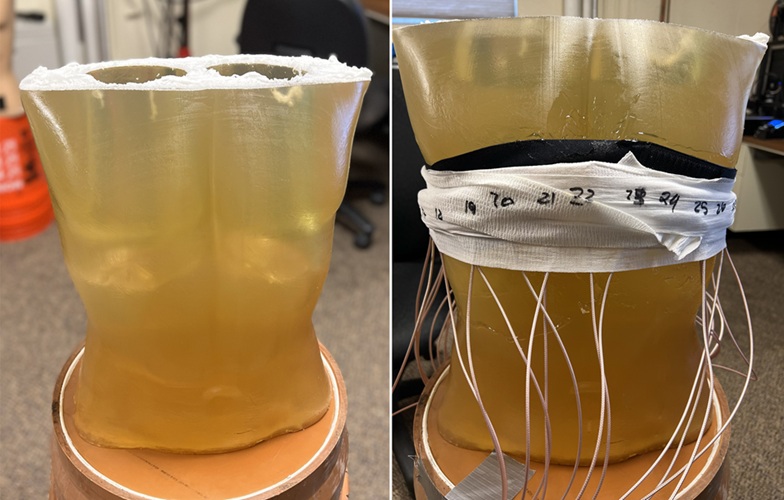
New Medical Ultrasound Imaging Technique Enables ICU Bedside Monitoring
Ultrasound computed tomography (USCT) presents a safer alternative to imaging techniques like X-ray computed tomography (commonly known as CT or “CAT” scans) because it does not produce ionizing radiation.... Read moreNuclear Medicine
view channel
Novel Bacteria-Specific PET Imaging Approach Detects Hard-To-Diagnose Lung Infections
Mycobacteroides abscessus is a rapidly growing mycobacteria that primarily affects immunocompromised patients and those with underlying lung diseases, such as cystic fibrosis or chronic obstructive pulmonary... Read more
New Imaging Approach Could Reduce Need for Biopsies to Monitor Prostate Cancer
Prostate cancer is the second leading cause of cancer-related death among men in the United States. However, the majority of older men diagnosed with prostate cancer have slow-growing, low-risk forms of... Read moreGeneral/Advanced Imaging
view channel
CT Colonography Beats Stool DNA Testing for Colon Cancer Screening
As colorectal cancer remains the second leading cause of cancer-related deaths worldwide, early detection through screening is vital to reduce advanced-stage treatments and associated costs.... Read more
First-Of-Its-Kind Wearable Device Offers Revolutionary Alternative to CT Scans
Currently, patients with conditions such as heart failure, pneumonia, or respiratory distress often require multiple imaging procedures that are intermittent, disruptive, and involve high levels of radiation.... Read more
AI-Based CT Scan Analysis Predicts Early-Stage Kidney Damage Due to Cancer Treatments
Radioligand therapy, a form of targeted nuclear medicine, has recently gained attention for its potential in treating specific types of tumors. However, one of the potential side effects of this therapy... Read moreImaging IT
view channel
New Google Cloud Medical Imaging Suite Makes Imaging Healthcare Data More Accessible
Medical imaging is a critical tool used to diagnose patients, and there are billions of medical images scanned globally each year. Imaging data accounts for about 90% of all healthcare data1 and, until... Read more
Global AI in Medical Diagnostics Market to Be Driven by Demand for Image Recognition in Radiology
The global artificial intelligence (AI) in medical diagnostics market is expanding with early disease detection being one of its key applications and image recognition becoming a compelling consumer proposition... Read moreIndustry News
view channel
GE HealthCare and NVIDIA Collaboration to Reimagine Diagnostic Imaging
GE HealthCare (Chicago, IL, USA) has entered into a collaboration with NVIDIA (Santa Clara, CA, USA), expanding the existing relationship between the two companies to focus on pioneering innovation in... Read more
Patient-Specific 3D-Printed Phantoms Transform CT Imaging
New research has highlighted how anatomically precise, patient-specific 3D-printed phantoms are proving to be scalable, cost-effective, and efficient tools in the development of new CT scan algorithms... Read more
Siemens and Sectra Collaborate on Enhancing Radiology Workflows
Siemens Healthineers (Forchheim, Germany) and Sectra (Linköping, Sweden) have entered into a collaboration aimed at enhancing radiologists' diagnostic capabilities and, in turn, improving patient care... Read more













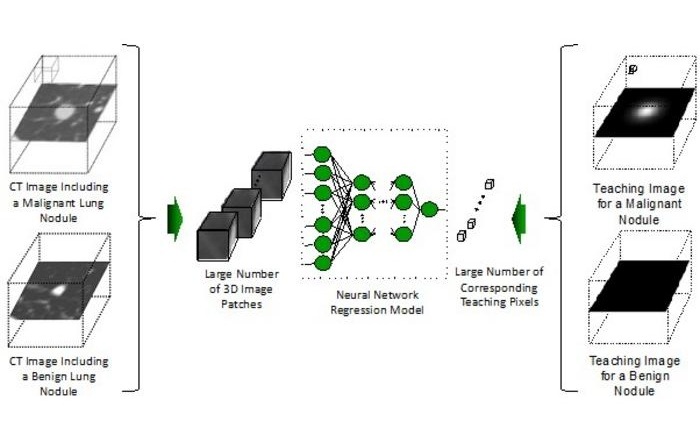
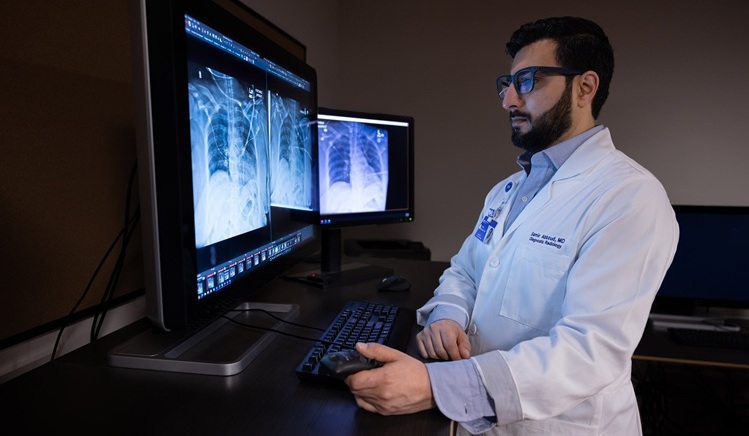



.jpeg)




